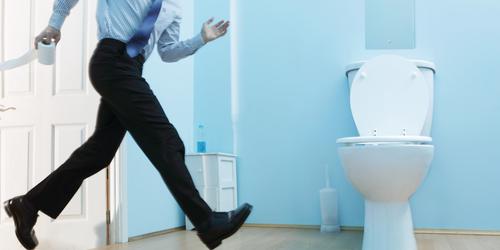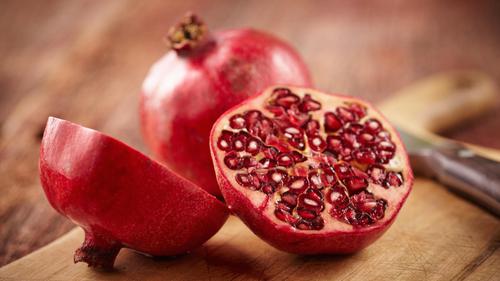Amazing Facts About Pain in the Back and Frequent Urges to Urinate
Lower back pain is an acute pain that people experience above their buttocks and below their ribs. This pain can be so severe that it alters an individual's normal working ability. The pain can range from dull, intermediate or sharp. Sometimes, the sharpness might feel like some sort of stabbing. If such pain lasts for longer than three months, it is termed as chronic. This back pain is sometimes hard to diagnose. Presently, medical experts have not found a clear link between pain in the back and frequent urges to urinate. Frequent urination is defined as the urge to urinate more than what would be considered normal. Sometimes, such urination can interfere with regular working ability or sleep.
Possible Causes of Pain in the Back and Frequent Natural Calls
Pain in the lower back and frequent urges to urinate might not have the same cause. Although, if they appear together, it can be a sign of an inner medical problem; probably in the urinary tract. A doctor's advice is strongly recommended. Below are some of the causes:

-
Cystitis: Cystitis is an infection in the urinary tract, especially the bladder. When suffering from cystitis, back pains and frequent urination are extremely common. When there is some fever, cloudy urine, a strong urine odor and discolored urine, they all indicate a urinary tract infection like cystitis.
-
Kidney problems: When an infection in the urinary tract gets to the kidney, advanced symptoms like nausea, abnormal night sweating, fatigue, cognitive impairment, high fever, and abdominal pain are experienced. A kidney helps in blood purification by excreting unwanted and excess minerals. Urinary mineral builds up in the kidney results in kidney stones. This condition causes frequent urination and severe back pain. Those suffering from kidney problems require urgent medical attention or a total kidney failure or chronic kidney illnesses can follow.
-
Prostate diseases: They include diseases like prostatitis. When this disease strikes, the prostate glands become swollen and develop sores. Later, issues like bladder emptying problems, back pain and recurrent urination, fatigue, chills, scrotal or penis pain, and ejaculation pains result. This condition causes serious discomforts that can have a negative effect on a man's well-being.
-
Cancer: Cancer is one of the causes of frequent urination and back pain. Its effects are very severe and expensive to treat. Some examples of cancer conditions that cause pain in the lower abdomen are kidney cancer, prostate cancer, bladder cancer and ovarian cancer. Such conditions require a doctor's attention.
-
Pregnancy and weight gain: During pregnancy, sharp backaches are frequently experienced due to tissue stretching as the body tries to accommodate the changing uterus and abdominal conditions. Secondly, urination is often experienced in the first trimester since the growing fetus exerts pressure on the bladder.
Regarding weight gain, it is advisable to watch one's diet. If individuals eat a lot of fat and calories packed foodstuffs, they will increase weight drastically. A lot of abdominal weight due to fat build-up increases the pressure placed on the bladder. In such a case, when a person laughs, sneezes or lifts something that is heavy, the bladder is under pressure, which causes urine to leak. Such effects require frequent trips to the bathroom to keep the bladder empty.

How to Reduce Pain in the Back and Frequent Natural Calls
Pain in the lower back and frequent urges to urinate is never a pleasant experience. The kind of pain to experience disturbs your comfort, and frequent urination will spoil your free time or sleep. But the following home remedies are there to help.
-
Pumpkin seeds: Pumpkin seeds harbor high quantities of omega 3 fatty acid, known for their anti-inflammatory effect. Since overactive bladder (OAB) is the most common cause of increased urination, pumpkin seeds can be used to rectify the effect. They can help prevent inflammation of the bladder thus dealing with high urination frequency.
-
Sesame seeds: Sesame seeds have a lot of health-related benefits. They are powerful antioxidants for the body. They provide vitamins, minerals, and fiber. All these properties are vital to help your body fight urinary tract infections. By doing so, the pain caused by infections will be dealt with and most importantly, so will urination frequency problems. Most urinary infections result in high urination frequency. By preventing the infection, the need for frequent urination is also prevented.
-
Pomegranate: Pomegranate fruits and peel (that people throw away) are very nutritious. They are also effective in preventing frequent urination. For example, pomegranate antioxidant properties eradicate cancerous free radicals thus ensuring your urinary tract being healthy. For pregnant women in advanced stages, pomegranates help prevent frequent urination.
-
Kegel Exercises: The human bladder is supported by pelvic muscles. These are the muscles that help hold in urine. If these muscles are weak, then urine leaking is inevitable. Kegel exercises are done by trying to contract and realizing them while lying down. Hold the contraction phase for five to ten seconds and then release. This is a great exercise to strengthen these muscles.
-
Massage: If your abdominal muscles feel extra tired, massage is the best option to relieve them. It helps in relieving abdominal muscle tension. Women during menstruation might experience some issue that leads to bladder infections and frequent urination. This happens due to abdominal muscle pressure on the bladder. A nice massage can help relax these muscles thus relieving the pressure.
In conclusion, if the situation gets too severe, over-the-counter drugs shall be considered. However, since medication sometimes has side effects, the better option may be trying any of the above guidelines under doctor's advice.
YOU MAY LIKE
-
Why Does It Hurt When I Pee
-
Why Do You Pee When You Cough?
-
6 Effective Ways to Treat Urinary Tract Infection (UTI)
-
Ways to Avoiding Urinary Tract Infections
-
Vital Tips to Prevent Kidney Stones
-
Best Ways to Get Rid of Kidney Stones
-
Abdominal Pain and Frequent Urination Female: Causes and Tips
-
Want to Pee but Can’t? Reasons and Solutions Why This Could Happen
-
Causes and Tips for White Blood Cells in Urine
-
Why the Epithelial Cells Appear in Urine?
